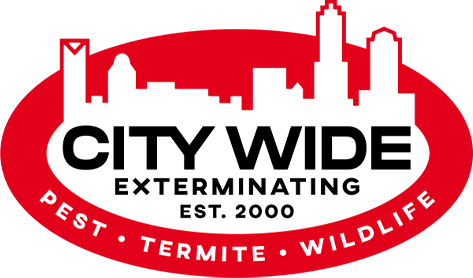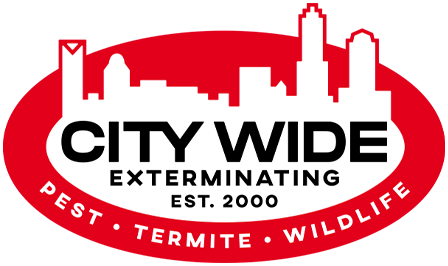Midsummer days and nights are prime insect season in North Carolina, with mosquitos and ticks and a host of other irritating bugs. When summer starts transitioning into autumn, many of those insects start to retreat–but that doesn’t mean that you don’t have to worry about pests. In fact, there is a whole new pest group that starts ramping up their activity as temperatures slowly but steadily start to drop, and that pest group is wildlife critters. We decided it would be helpful if we put together a list of the top 5 wildlife that you should keep an eye out for in the next few months, so let’s get started with number one….
SNAKES
There are 37 different types of snakes in North Carolina, and while most of them don’t pose a serious danger, 6 of those species are venomous–so you need to tread carefully if you identify a snake presence in your house or on your property. Many of these snakes will be looking for dark spaces to hide from the cold come winter, which makes places like sheds, barns, garages, and even old tree stumps in your yard a desirable hiding place. Here’s how you can avoid a conflict with snakes you come into contact with:
- Declutter your yard. Snakes seek out areas with thick cover where rodents and other prey species are likely to be found. Keeping bushes and plants around your home trimmed and clearing out piles of rock, wood, and other debris will make your property less appealing for snakes.
- Remove entry points. Discourage snakes from entering your home by closing gaps and holes. Repair damage to siding and foundations and permanently seal openings under doors, windows, and around water pipes. Securing your home will help keep snakes (and other wildlife) out of your living space.
- Be aware of your surroundings. As you go for walks outside, do yard work, or work in the garden, be aware that snakes could be in the area. Being prepared for the possibility of encountering a snake and watching where you step and place your hands can minimize the chance of you disturbing or stepping on a snake.
- Educate yourself and others. Always stay a respectful distance away from snakes (and other wildlife) and remind kids to look but not touch. Learning how to identify the species of snakes that commonly occur in your area will help you during an encounter.
RACCOONS
Raccoons are also active in the spring and summertime, but it’s during the fall months when they begin looking for wintertime shelter. Unfortunately, raccoons tend to like finding shelter in and around man-made structures, and your property can be the perfect winter den for them. Luckily, there are a number of ways that you can deter raccoons, including:
- Seal garbage cans tight. Raccoons have opposable thumbs and can remove any loose or broken lids, so try to use garbage cans that have lids that lock into place with handles or clamps. If necessary, keep garbage cans inside a secure building like a garage,
- Don’t feed them. If you have pets, feed them during the day and don’t leave their food or water dishes outside.
- Control access. Blocking off access is the best raccoon deterrent for your home. Inspect your house thoroughly to find any holes or crevices where raccoons may enter including chimneys, attic vents, and the seams along roofs and baseboards. Block any spaces with sheet metal or heavy screening.
- Scare tactics don’t work. Banging pots and pans may be a temporary raccoon deterrent, but they are persistent and will return once the noise stops.
- Watch out for raccoons that are active during the day, move erratically, or aren’t afraid of humans, because they may have rabies. If you suspect there is a rabid raccoon on your property, call your local wildlife control.
SKUNKS
Skunks will look to find warm places to burrow underneath in the fall, so keep an eye out for skunk holes near decks, sheds, porches, garages, and your home foundation. Habitat modification can be an effective way to prevent skunks; this process includes:
- Removing attractants around the house, including securing trash, covering window wells, feeding pets indoors, or if fed outdoors, and removing food immediately after pets eat will decrease the likelihood of an unpleasant skunk encounter.
- Skunks also dig for grubs in lawns when wet soil conditions push grubs close to the surface — their presence may be a sign of an overwatered lawn, so try to keep your lawn properly watered: not too little, but also not too much.
SQUIRRELS
Squirrels will be looking for safe, warm places to overwinter during the Fall months, and then birth their young in the spring. You should closely monitor places like sheds, attics, and garages. Some ways you can prevent squirrels include:
- Removing nuts, berries, and acorns from your roof, gutters, and yard.
- Keep trash cans lidded and properly sealed.
- If you have a garden, consider using fencing or netting to keep squirrels out–and deter them from taking up residence on your property.
BATS
Some species of bats hibernate come winter, and so will look to find dark, warm places to hide to escape the cold, like your attic, garage, or basement. There are a few ways that you can try to bat-proof your home:
- Seal any openings larger than a quarter-inch by a half-inch.
- Use window screens, chimney caps, and draft guards beneath doors to attics, fill electrical and plumbing holes with stainless steel wool or caulking, and ensure that all doors to the outside close tightly.
- Observe where the bats exit at dusk install one-way devices to allow bats to leave, but not re-enter.
PROFESSIONAL PEST CONTROL CAN GET RID OF WILDLIFE
If you think you’re dealing with one of these 5 wildlife nuisances, contact City Wide Exterminating. Trying to take care of an animal on your own can be dangerous, and we’ve created wildlife removal processes specifically to take care of any issues that you’re having safely and professionally.

